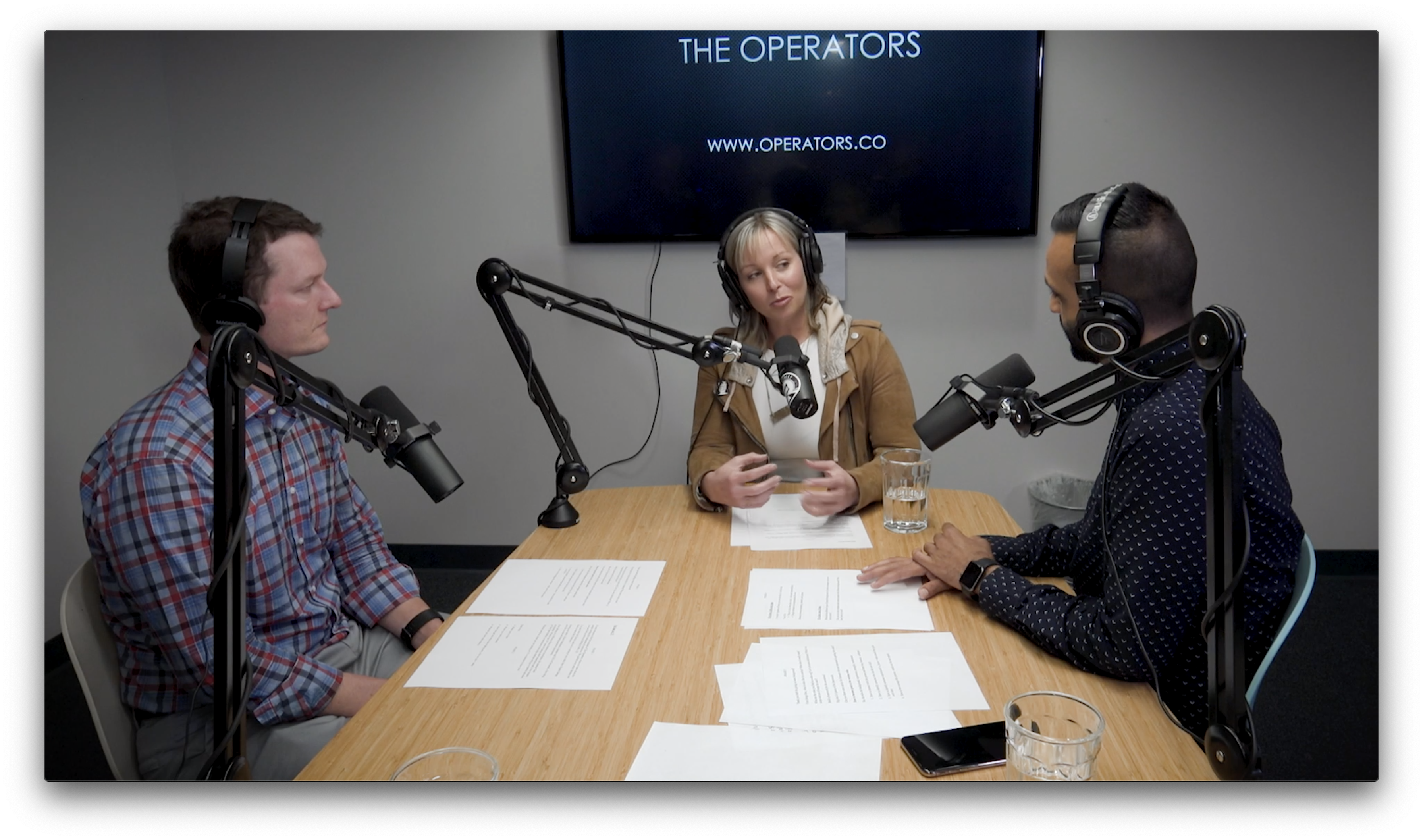Welcome to this transcribed edition of The Operators. TechCrunch is beginning to publish podcasts from industry experts, with transcriptions available for Extra Crunch members so you can read the conversation wherever you are.
The Operators highlights the experts building the products and companies that drive the tech industry. Speaking from experience at companies like Google, Brex, Slack, Docsend, Facebook, Edmodo, WeWork, Mint, etc., these experts share insider tips on how to break into fields like product management and enterprise sales. They also share best practices for entrepreneurs to hire and manage experts in fields outside their own.
This week’s edition features Whitney Sales, a general partner at Acceleprise, the leading enterprise SaaS accelerator, and Russ Heddleston, founder and CEO of DocSend, a fast-rising document management and sharing product.
Whitney brings sales experience from LoopNet, Meltwater, SpringAhead/Tallie, and People Data Labs, before starting her own sales consultancy aptly named “The Sales Method.” Russ brings experience from founding and selling his first company to Facebook, before becoming the first salesperson of the second company he founded, DocSend.

Neil Devani and Tim Hsia created The Operators after seeing and hearing too many heady, philosophical podcasts about the future of the world and the tech industry, and not enough attention on the practical day-to-day work that makes it all happen.
Tim is a Venture Partner at Digital Garage and the CEO & Founder of Media Mobilize, a media company and ad network. Neil is an early-stage investor based in San Francisco with a focus on companies that solve serious problems, including Andela, Clearbit, Recursion Pharmaceuticals, Vicarious Surgical, and Kudi.
If you’ve ever had to convince anyone of anything, or are interested in a career in sales or starting a company where you will have to hire or manage salespeople, you can’t miss this episode.
The show:
The Operators, hosted by Neil Devani and Tim Hsia, highlights the experts building the products and companies that drive the tech industry. Speaking from experience at companies like Google, Brex, Slack, Docsend, Facebook, Edmodo, WeWork, Mint, etc., these experts share insider tips on how to break into fields like product management and enterprise sales. They also share best practices for entrepreneurs to hire and manage experts in fields outside their own.
In this episode:
In Episode 1, we’re talking about sales. Neil interviews Whitney Sales, an investor with Acceleprise, the leading enterprise SaaS accelerator, and Russ Heddleston, founder and CEO of Docsend.
Neil Devani: Hi and welcome to the first episode of The Operators when we talk to the people building the companies of today and tomorrow. We publish every other Monday and you can find us online at operators.co.
Today’s episode is sponsored by Four Sigmatic. Four Sigmatic’s Lion’s Mane Mushroom Coffee has all of coffee’s focusing bark with none of the jittery bite. Lion’s Mane provides productivity, focus, and creativity all while being a healthy alternative to that daily cup of coffee. Go to www.foursigmatic.com/operators-special to try out Four Sigmatic.
I’m your host Neil Devani, and we’re coming to you today from Digital Garage here in sunny San Francisco. Joining me is Russ Heddleston, founder and CEO of DocSend, a popular product for managing and sharing sensitive documents.
Also joining us is Whitney Sales, partner at Acceleprise, the premier SaaS accelerator. Whitney has 10 years of startup sales experience and is the founder of the sales method, a consultancy that helps startups with go-to-market and sales. Whitney and Russ, thank you for joining us. It’s a pleasure to have you. If we could start if just give us a little bit of your background that would be great.
Russ Heddleston: I’ll start. I’m Russ Heddleston, as you said, co-founder and CEO of DocSend. My background is not in sales it’s in software engineering. I was at Stanford for my Bachelor’s and Masters in computer science. And then I worked at a bunch of different tech companies over the years as an intern at Microsoft, as a PM intern, I was the first engineering intern at Trulia, I ran the engineering team in a company called Greystripe for a few years, an early intern at Dropbox.
And then DocSend is actually my second company. I started the first one in 2010 while I was in business school at Harvard, and then ended up being acquired by Facebook. And I started DocSend about six years ago here in San Francisco.
Whitney Sales: Hi, my name is Whitney Sales. I’m a GP, general partner at Acceleprise Ventures. My background is an early stage sales. Before Acceleprise I actually started a sales consultancy called The Sales Method where I worked with founders in getting to $1M in ARR, really in the early stages of the problem solving of sales.
Before that I worked for several startups. LoopNet in the early days, helped launch two products for them. I worked at a company called Meltwater before they were acquired.
And I worked for a company called SpringAhead. They are now Tallie, they were also acquired. Ran sales for a company called People Data Labs. And then I just spun out on my own and started the Sales Method which ended up bringing me to Acceleprise.

Devani: Awesome, really great story. Just to start, I would love to hear from both of you a little bit about your organizations and how you think about sales. And maybe you can give us a little bit of the definitions around different roles that you see in a sales organization, whether it’s your company or other companies you’re investing in or have worked with in the past.
Sales: There’s a lot of different roles in sales. It really depends on the type of organization you’re running, candidly. But traditionally there’s an SDR, sales development rep. I usually recommend that being the first hire in a sales team for a founder, so they can scale up their own time.
Then there’s an account executive within an organization that’s typically doing a direct sale. There may be senior account executives or junior account executives, like a mid-market enterprise executive depending on the type of sales cycle they’re running.
Sales engineers, if you’re dealing with a complex dev tool, traditionally, or a more heavy enterprise implementation tool.